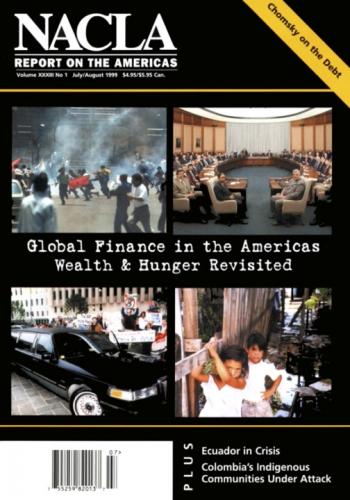Report
In July 1944, as the war in Europe drew to a close, delegates from 44 nations met in Bretton Woods, New Hampshire to develop the framework for a postwar global financial order, presumably to avoid future financial crises like the Great Depression, seen by many as the cause of World War II.
Jubilee 2000, a well-funded coalition of religious and civic groups, is spearheading a world-wide campaign for the cancellation of Third World debt. "The Biblical tradition calls for a Jubilee year," the group proclaims, "when slaves are set free and debts are cancelled.
The last 20 years have been kind to the United States. It defeated its rival of 70 years and restructured a good bit of the economic and ideological world in its own image. Along with the obvious weapons of Hollywood and the Pentagon, no small part of this reassertion of power has been what has been called “the Americanization of global finance.”[1]
The extraordinary rise of global finance has been the single most outstanding economic development in the last quarter of this century. The breakdown in the early 1970s of the global system of fixed exchange rates established at the Bretton Woods conference has unleashed a series of booms—foreign exchange markets in the 1970s, bond markets in the 1980s, and global equity markets in the 1990s.[1]
It had been a productive morning so far. The family I was helping had picked close to 200 pounds of red, ripe coffee beans and we were relaxing around a cooking fire where the women had prepared a feast of beans, tortillas and avocado. Life seemed peaceful for the moment.
In the early 1970s, following Richard Nixon's removal of the U.S. dollar from its gold and silver backing and the "shock" caused by the steep rise in oil prices, the international economic order which had been in place since the end of World War II came to an exhausted end.

